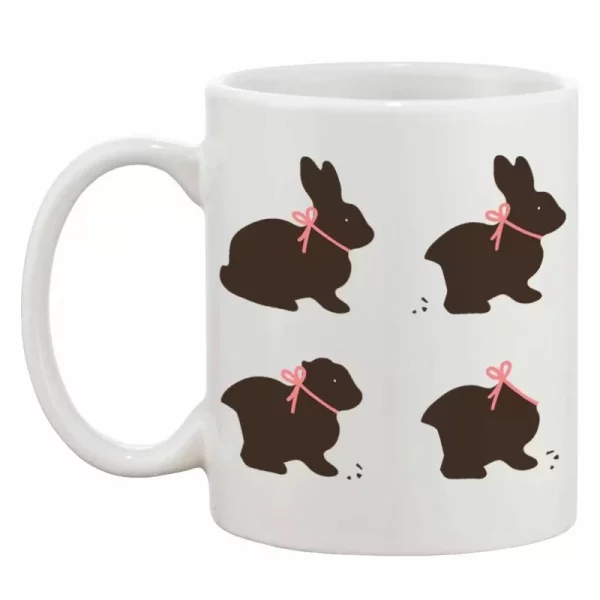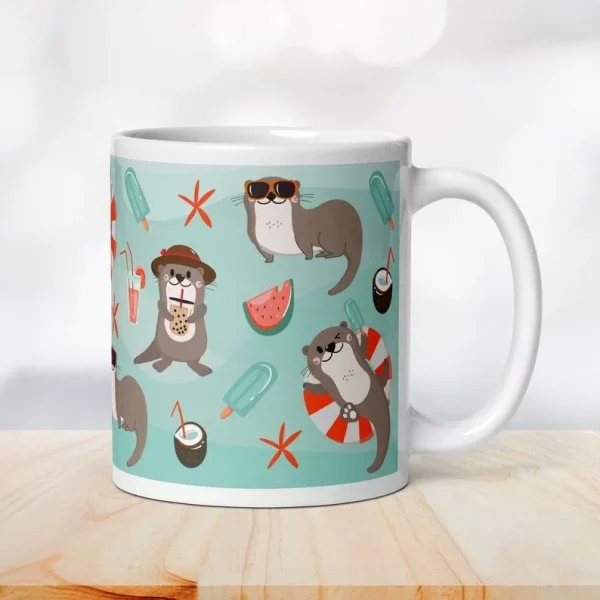
Veterinary Care Essentials 🐾
Ensuring the Best Health for Your Furry Friends: Veterinary Care Essentials 🐾
In the bustling world of pet care, where joy and companionship meet responsibility, the health of our furry friends holds paramount importance. Understanding the essentials of veterinary health care—vaccinations, deworming, and routine check-ups—can be the golden key to a happy and healthy life for our beloved animals. As we explore these crucial topics, we invite you to engage with a variety of useful resources and some charming digital pet portraits at Meliav Digital to commemorate your pet’s delightful quirks. 🎨
The Importance of Vaccinations 🌡️
Vaccinations are a fundamental aspect of pet care, protecting them from various infectious diseases. By stimulating the immune system with a vaccine, which contains antigens akin to disease-causing organisms, we prepare our pets’ bodies to fight future infections without exposing them to disease risks. According to Nature, vaccines have significantly reduced the number of pets affected by once-common diseases like canine parvovirus and feline leukemia (Nature).
The Core Vaccines Your Pet Needs
For dogs, core vaccines include rabies, distemper, parvovirus, and hepatitis. Cats require protection against rabies, calicivirus, herpes virus, and panleukopenia. These vaccinations are recommended by veterinary experts worldwide and should be administered according to the schedule advised by your veterinarian.
Deworming: A Shield Against Parasites 🛡️
Deworming is crucial for maintaining your pet’s health. Parasites like heartworms, roundworms, and tapeworms can cause severe health problems and even be life-threatening. Regular deworming, as detailed in The New York Times, is vital to prevent these parasites from taking a toll on your pet’s health (The New York Times).
Routine Deworming Schedule
Puppies and kittens should be dewormed every two weeks until they are twelve weeks old, and then monthly until they are six months old. Adults should be dewormed at least twice a year, based on their lifestyle and your vet’s recommendations.
The Role of Routine Check-Ups 🏥
Routine veterinary check-ups are not merely about getting vaccinations or deworming. These visits provide a comprehensive assessment of your pet’s overall health, from weight management to dental care. As highlighted by Hill’s Pet Nutrition, regular check-ups can detect early signs of health issues before they become serious (Hill’s Pet).
What to Expect During a Check-Up
A typical veterinary check-up includes:
- Physical Examination: Checking the body for any irregularities.
- Dental Assessment: Ensuring no dental diseases are developing.
- Weight Check and Diet Advice: Keeping your pet’s weight in check to prevent obesity-related health issues.
- Behavioral Assessment: Understanding any changes in behavior that could indicate stress or health problems.
Why Continuous Education Matters 📚
Staying informed through reliable sources like National Geographic helps pet owners make educated decisions about their pets’ health. Knowledge about potential health risks and the latest veterinary practices is crucial for pet longevity and happiness.
Commemorate Your Pet’s Journey 🖼️
While taking care of your pet’s health is essential, celebrating their life and moments is just as important. Visit Meliav’s main site and explore custom digital portraits that capture your pet’s spirit. Additionally, enrich your understanding with targeted resources within Meliav’s site:
Engaging Visual Resources
Explore this enlightening YouTube video on the importance of pet vaccinations and routine check-ups to visually guide you through the process.
Summary of Key Points
- Vaccinations are essential for preventing severe diseases in pets.
- Deworming should be done regularly to fight off parasites.
- Routine check-ups are critical for assessing and maintaining overall pet health.
Practical Tips from Our Discussion
- Schedule vaccinations and deworming as recommended by your vet.
- Observe your pet’s behavior and physical condition regularly to catch any early signs of health issues.
- Celebrate your pet’s milestones with a personalized portrait from Meliav Digital.
By embracing these practices, we ensure our pets lead healthy, joyful lives. Remember, a little prevention goes a long way in pet care! 🐕💕
Comprehensive Care Guide for Your Dogs and Cats: Essential Vaccinations and More 🐾💉
We’re diving into the essentials of dog and cat care, focusing on mandatory and optional vaccinations as recommended by the FDA and other veterinary health organizations. Proper vaccination is crucial in keeping our furry friends healthy and safe from various diseases. This guide will help you navigate the world of pet care with confidence and love! 🐶🐱
Essential Vaccinations for Dogs 🐕
Caring for your canine companion involves more than just daily walks and belly rubs. Vaccinations play a critical role in ensuring their long-term health.
Mandatory Vaccines for Dogs 📅💉
- Rabies: Required by law across the United States, this vaccine is crucial for preventing a fatal virus that affects the brain and nervous system.
- Canine Parvovirus: Often fatal, this virus attacks the gastrointestinal system and is especially severe in puppies.
- Canine Distemper: A serious viral illness with no known cure, affecting the respiratory, gastrointestinal, and nervous systems.
- Canine Hepatitis: Caused by Adenovirus Type 1, this disease affects the liver, kidney, spleen, lungs, and eyes.
Optional Vaccines for Dogs 🎈💉
- Bordetella Bronchiseptica: Recommended for dogs that frequent kennels or social settings, this vaccine protects against a common cause of kennel cough.
- Leptospirosis: Recommended for dogs exposed to wildlife or water sources where the bacteria might be present.
- Canine Influenza: Advised for pets that interact with many other dogs in areas where outbreaks occur.
🔗 For a deeper understanding of dog vaccines, visit Wikipedia.
Essential Vaccinations for Cats 🐱
Cats require their own set of vaccinations to protect against health issues that can affect their quality of life.
Mandatory Vaccines for Cats 📆💉
- Rabies: Like dogs, cats must also be vaccinated against rabies, particularly if they go outdoors or could potentially come into contact with wild animals.
- Feline Calicivirus: Protects against a respiratory infection that can cause pneumonia in kittens.
- Feline Herpesvirus Type I (Rhinotracheitis): Spreads easily among cats and can cause severe respiratory issues.
- Panleukopenia (Feline Distemper): A highly contagious viral disease that can cause severe gastrointestinal distress.
Optional Vaccines for Cats 🎉💉
- Feline Leukemia (FeLV): Recommended for cats that spend any time outdoors, where they could come into contact with infected cats.
- Chlamydophila Felis: Recommended for multi-cat households, this vaccine protects against a bacterial infection that can cause conjunctivitis.
🔗 Learn more about cat vaccinations on Hill’s Pet Nutrition.
General Care Tips for Dogs and Cats 🐕🐱
For Dogs:
- Regular Exercise: Keeps them healthy and manages weight.
- Grooming: Essential for all breeds to maintain coat and skin health.
- Nutrition: A balanced diet specific to breed, age, and health status is crucial.
For Cats:
- Litter Box Maintenance: Keep it clean to encourage use and prevent behavioral issues.
- Mental Stimulation: Toys and playtime to keep their mind active.
- Preventive Health Care: Regular check-ups to catch any issues early.
🔗 Discover more about pet care on National Geographic.
Useful Resources for Pet Owners 📘🔗
- FDA Pet Health
- Nature – Veterinary Science
- Check out Meliav Digital Art for custom pet portraits.
Additional Links:
Conclusion: Keeping Your Pets Healthy and Happy 🌟💚
Adopting a pet is just the beginning of a journey of care and companionship. By ensuring you’re up-to-date with the necessary vaccinations and providing a nurturing environment, you’re setting the stage for a long, healthy, and joyful life together. 💌
🎨 Celebrate your pet’s health and happiness with a personalized portrait from Meliav Digital. A beautiful way to remember the special bond you share!
Share your pet care tips or questions in the comments—we love to learn and grow with our reader community! 🌟
❤️ Immortalize your pet with an unforgettable portrait.🐶😺
Ultimate Guide for Farm Dogs and Cats: Health Tips and Prevention Strategies 🌾🐾
Greetings, fellow farm enthusiasts! 🚜 Are you a proud owner of dogs and cats living on a farm, in the countryside, or in rural areas? Today, we’re delving into essential tips to ensure the health and well-being of our beloved furry friends. From preventive care to disease management, let’s empower ourselves to provide the best possible life for our four-legged companions! 🐶🐱
Tips for Farm Dogs 🐕
Living on the Land 🌳🏡
- Space to Roam: Dogs thrive in wide-open spaces, so ensure they have ample room to explore and run.
- Secure Fencing: Install sturdy fencing to keep your dogs safe and prevent them from wandering off.
- Shelter: Provide shelter from the elements, including heat, cold, rain, and wind.
Preventive Health Care 🩺💊
- Regular Veterinary Check-ups: Schedule routine visits to monitor your dog’s health and address any issues promptly.
- Vaccinations: Stay up-to-date with essential vaccinations to protect against common diseases.
- Parasite Control: Implement a regular deworming and flea/tick prevention program to keep parasites at bay.
Common Diseases and Prevention 🦠🛡️
- Tick-Borne Diseases: Use tick preventatives and regularly check for ticks to prevent diseases like Lyme disease and Ehrlichiosis.
- Leptospirosis: Avoid stagnant water sources and consider vaccination to protect against this bacterial infection.
- Heatstroke: Provide plenty of shade and fresh water, and avoid strenuous activity during hot weather to prevent heat-related illnesses.
Tips for Farm Cats 🐱
Country Living Essentials 🌾🏡
- Outdoor Access: Cats enjoy the freedom of outdoor exploration, but ensure they have a safe environment away from predators and hazards.
- Cozy Hideaways: Provide cozy shelters and hiding spots for cats to retreat to when needed.
- Feeding Stations: Offer food and water in a protected area to prevent contamination and competition from other animals.
Preventive Health Measures 🩺💊
- Routine Veterinary Care: Schedule regular check-ups and vaccinations to keep your cat healthy and disease-free.
- Parasite Prevention: Administer flea, tick, and worm preventatives as directed by your veterinarian.
- Spaying and Neutering: Prevent overpopulation and reduce the risk of certain health issues by spaying or neutering your cat.
Common Health Concerns and Prevention 🦠🛡️
- Feline Leukemia Virus (FeLV): Minimize contact with other cats to prevent transmission of this contagious virus.
- Feline Immunodeficiency Virus (FIV): Keep cats indoors to reduce exposure to infected cats and prevent the spread of FIV.
- Toxoplasmosis: Avoid feeding cats raw meat and ensure proper disposal of cat feces to reduce the risk of toxoplasmosis transmission.
Conclusion: Nurturing Healthy Lives on the Farm 🌟🚜
By implementing these tips and preventive measures, you can create a safe and nurturing environment for your dogs and cats on the farm. Remember, regular veterinary care and proactive health management are key to ensuring a happy and fulfilling life for our beloved companions. Let’s cherish the bond we share with our furry friends and continue to prioritize their well-being! 💚
🎨 Capture the spirit of farm life with a custom pet portrait from Meliav Digital. A beautiful tribute to the special animals that enrich our lives every day!
Share your farm pet care tips or questions in the comments below—let’s build a community dedicated to the health and happiness of our furry farm friends! 🌾🐾

Preparing for Puppies: A Comprehensive Guide for Responsible Dog Breeding 🐾🐶
🌟 If your dogs are expecting a litter, you’re about to embark on an exciting and rewarding journey. Whether you’re pondering the sale of puppies, considering their role on your farm, or simply curious about the care they’ll need, this guide is packed with essential information to help you make informed and compassionate decisions. Let’s dive into the world of puppy care, breeding ethics, and more! 🍼🐕
Understanding the Basics of Dog Breeding 📘🐾
Breeding dogs is a significant responsibility that requires careful consideration and planning. Here are some initial steps and considerations:
Health and Genetics
- Veterinary Care: Prioritize health screenings for both parents to ensure they’re free from hereditary conditions that could affect the puppies.
- Genetic Testing: Essential to prevent the propagation of breed-specific diseases.
🔗 Learn more about genetic health on Nature.
Ethical Breeding Practices
- Breeding Ethics: Understand the ethical implications of breeding. It’s crucial to breed responsibly and enhance the breed’s health and vitality rather than just for profit or aesthetic reasons.
- Registration and Compliance: Ensure adherence to local breeding regulations and consider registering with recognized kennel clubs for pedigree documentation.
🔗 Explore ethical breeding practices on Wikipedia.
Caring for Newborn Puppies 🍼🐶
Essential Care Tips
- Whelping Box: Prepare a comfortable and clean whelping box for the mother to give birth and care for her puppies.
- Nutrition: Feed the mother high-quality, nutrient-rich food before and after birth to support her health and milk production.
- Monitoring: Keep a close watch on the puppies to ensure they are feeding regularly and staying warm.
🔗 Check out comprehensive puppy care tips on Hill’s Pet Nutrition.
Is Selling Puppies Recommended? 💰🐕
Considerations for Selling
- Demand and Responsibility: Ensure there is a demand for the puppies and that potential owners are responsible and prepared for lifelong care.
- Legal and Health Requirements: Provide necessary vaccinations, health checks, and comply with any local laws regarding the sale of animals.
🔗 For insights on pet sales and regulations, visit National Geographic.
Utilizing Puppies on a Farm 🚜🐶
Farm Roles for Dogs
- Herding: Breeds like Border Collies and Australian Shepherds are excellent for herding livestock.
- Protection: Larger breeds can help protect livestock from predators and trespassers.
- Companionship: All dogs, regardless of breed, can provide companionship and joy to farm life.
🔗 Discover more about farm dogs on Meliav’s About Us.
Links to Useful Resources at Meliav.com 🌐
Conclusion: Nurturing Your Furry Family Responsibly 📘💖
Raising puppies is a fulfilling experience that enhances the bond between you and your dogs. Whether you decide to sell the puppies, keep them, or integrate them into farm life, ensuring their health, happiness, and well-being is paramount. Remember, every puppy deserves a safe, loving, and stable home. 💌
🎨 Celebrate your new litter with a custom portrait from Meliav Digital. Capture the adorable early moments of your puppies’ lives in a beautiful, personalized artwork!
Share your experiences, tips, or questions about dog breeding and puppy care in the comments below. We love hearing from our reader community and supporting each other in our pet parenting journeys! 🌟

❤️ Precious frames for your custom pet portraits.🐶😺
At-Home Care for Your Dogs and Cats: Prevention and Remedies 🐾🏡
Today, we’re diving into the world of at-home care for our beloved dogs and cats. Keeping your furry friends healthy involves more than just regular vet visits—it’s about daily practices that ensure their well-being. Let’s explore some essential tips and tricks to prevent and address common health issues right from the comfort of your home. Ready to become a pro in pet health care? Let’s go! 🐶🐱
Home Health Care for Dogs 🐕
Dogs are not just pets; they’re family members who need our care and attention to thrive. Here’s how you can proactively look after your dog’s health at home:
Nutrition and Diet 🍽️
- Balanced Diet: Feed your dog a high-quality diet suitable for their age, weight, and health condition. Consult with your vet to choose the best food that provides all the necessary nutrients.
- Healthy Treats: Opt for natural treats like carrots or apples instead of commercial treats high in fat or sugar.
Exercise and Weight Management 🏋️♂️🐕
- Regular Exercise: Keep your dog active with daily walks, playtime, and training exercises. Regular physical activity helps maintain a healthy weight and prevents obesity-related diseases.
- Weight Checks: Regularly monitor your dog’s weight to quickly act if any weight gain or loss is noticed.
Dental Care 🦷
- Teeth Brushing: Brush your dog’s teeth several times a week using a toothpaste formulated for dogs. This prevents tartar build-up and gum disease.
- Dental Chews: Provide dental chews that help clean teeth and freshen breath.
Skin and Coat Care 🧼🐕
- Regular Grooming: Brush your dog regularly to remove dirt, debris, and loose hair. This also helps to spread natural oils throughout their coat, improving coat health.
- Bathing: Bathe your dog as needed, but not too frequently, to avoid stripping essential oils from their skin.
Preventing Parasites 🐜
- Flea and Tick Prevention: Apply monthly flea and tick preventatives as recommended by your vet. Regularly check your dog’s coat for any signs of parasites.
- Heartworm Prevention: Administer heartworm prevention medication as prescribed by your veterinarian.
🔗 Discover more about dog care on Hill’s Pet Nutrition.
Home Health Care for Cats 🐱
Cats often appear independent, but they require just as much care as dogs to ensure their health and happiness. Here are key practices for your cat’s health:
Nutrition and Hydration 🍲🐱
- Quality Cat Food: Provide a diet that suits your cat’s age, activity level, and health requirements. Consult with your vet for recommendations.
- Fresh Water: Always have fresh water available. Consider a cat water fountain to encourage hydration, especially important for kidney health.
Litter Box Maintenance 🚽
- Cleanliness: Keep the litter box clean and odor-free. Regular cleaning prevents diseases and promotes good bathroom habits.
- Multiple Boxes: Have more than one litter box if you have multiple cats to prevent stress and territorial issues.
Mental Health and Enrichment 🧠🎨
- Interactive Play: Engage your cat with toys and interactive playtime to keep them mentally stimulated and physically fit.
- Scratching Posts: Provide scratching posts or pads to meet their natural scratching behavior, which helps keep their claws healthy and relieves stress.
Regular Grooming and Inspection 🐱🧼
- Brushing: Regularly brush your cat to reduce hairballs and maintain coat health.
- Ear and Eye Checks: Regularly inspect your cat’s ears and eyes for any signs of infection or irritation.
Vaccinations and Regular Vet Visits 💉
- Up-to-Date Vaccinations: Follow a regular vaccination schedule to protect against common feline diseases.
- Annual Health Checks: Even if your cat seems healthy, annual visits to the vet for a check-up can prevent or catch early signs of diseases.
🔗 Learn more about cat health on Nature.
Conclusion: Empowering Pet Parents for Healthier Pets 📘💕
By integrating these preventative measures and care techniques into your daily routine, you can significantly enhance the quality of life for your dogs and cats. Remember, a little prevention goes a long way in avoiding future health issues and vet bills. Be proactive in your pet care approach to enjoy more happy, healthy years with your furry family members. 💌
🎨 Don’t forget to celebrate your pets with a custom portrait from Meliav Digital, capturing the essence of your cherished companions in stunning detail!
We’d love to hear how you care for your pets at home! Share your tips or ask questions in the comments below—let’s keep our pet community informed and engaged! 🌟
Boosting Pet Health: Essential Supplements and Foods for Dogs and Cats 🐾🍽️
🌟 Are you looking to bolster your furry friend’s health and prevent potential diseases? You’ve come to the right place! Today, we’re diving deep into the best supplements and nutritious foods that can help keep your dogs and cats healthy, along with establishing beneficial habits for their overall wellness. Let’s explore how to nourish and protect your beloved pets effectively! 🐶🐱
Essential Supplements for Dogs 🦴🐕
Keeping your dog in peak health means more than just regular vet visits; it involves daily nutrition and supplements that can help ward off diseases. Here’s what you need to know:
Top Supplements for Canine Health
Fish Oil (Omega-3 Fatty Acids):
- Benefits: Supports skin health, coat quality, and joint health; has anti-inflammatory properties.
- Source: Nordic Naturals – Omega-3 Pet Nordic Naturals
Probiotics:
- Benefits: Aids in maintaining gut health, improves digestion, and boosts immune function.
- Source: PetVitalityPRO Probiotics for Dogs PetVitalityPRO
Glucosamine and Chondroitin:
- Benefits: Promotes joint health and mobility, particularly beneficial for aging dogs or those with arthritis.
- Source: Cosequin DS Plus MSM Chewable Tablets Chewy
Nutritious Foods
- Lean Proteins: Chicken, turkey, and fish provide essential amino acids.
- Whole Grains: Brown rice and barley offer dietary fiber for digestive health.
- Fresh Vegetables: Carrots and green beans are excellent sources of fiber and vitamins.
Essential Supplements for Cats 🐾🐈
Cats have specific nutritional needs that differ from dogs, requiring targeted supplements and foods to ensure optimal health.
Top Supplements for Feline Health
Taurine:
- Benefits: Essential for heart and eye health; taurine deficiency can lead to serious health issues in cats.
- Source: NOW Foods Taurine Powder NOW Foods
Vitamin B Complex:
- Benefits: Supports immune function, skin health, and proper nerve function.
- Source: Vetoquinol Hi-Vite Drops Vetoquinol
Antioxidants (Vitamins E and C):
- Benefits: Helps reduce inflammation and protect against cellular damage.
- Source: Nutramax Laboratories – Cosequin for Cats Nutramax Laboratories
Nutritious Foods
- High-Quality Protein: Ensure that protein sources like chicken, fish, or beef are the primary ingredient in your cat’s food.
- Whole Ingredients: Foods containing whole ingredients provide essential nutrients naturally.
- Fiber: Small amounts of fiber can help prevent hairballs and maintain good digestive health.
Establishing Good Habits for Pet Health 📚🌿
Routine Care
- Regular Exercise: Keeps pets physically fit and mentally stimulated.
- Dental Hygiene: Regular brushing and dental treats help maintain oral health.
- Consistent Veterinary Check-ups: Early detection of potential health issues can save lives.
Environmental Enrichment
- Safe Play Areas: Provide a safe and stimulating environment for physical activity.
- Social Interaction: Regular interaction with humans and other animals can improve your pet’s emotional health.
Mental Health
- Training and Mental Challenges: Engage your pets with training sessions and puzzles to keep their minds sharp.
- Stress-Free Environment: Reduce loud noises and disruptions to help your pets feel secure.
🔗 For more insights into pet care, visit The New York Times and National Geographic.
Conclusion: A Path to Wellness for Your Pets 📘💕
Incorporating these supplements and foods into your pet’s diet, coupled with consistent care practices, can significantly enhance their health and vitality. By being proactive about your pet’s nutrition and well-being, you’re setting them up for a longer, happier life.
Key Takeaways 📝
- Supplements can fill nutritional gaps and prevent common health issues.
- A balanced diet tailored to your pet’s specific needs is crucial for their overall health.
- Regular care and mental stimulation are essential for a happy, healthy pet.
Explore More at Meliav.com 🌐
🎨 Remember to celebrate your pet’s health and spirit with a custom portrait from Meliav Digital, capturing the beauty and uniqueness of your beloved companion.
We’d love to hear how you maintain your pet’s health or any tips you might have! Share your stories in the comments below—let’s support each other in our journey to pet wellness! 🌟
Follow us on Instagram @MeliavDigital for exclusive promotions and celestial pet stories! 🌟📷
Would you like your pet's portrait in more places?. These beautiful gifts are for you:
Funniest pet portraits ever seen ❤️
Promotions: Custom Pet Portrait offers in Black Friday









